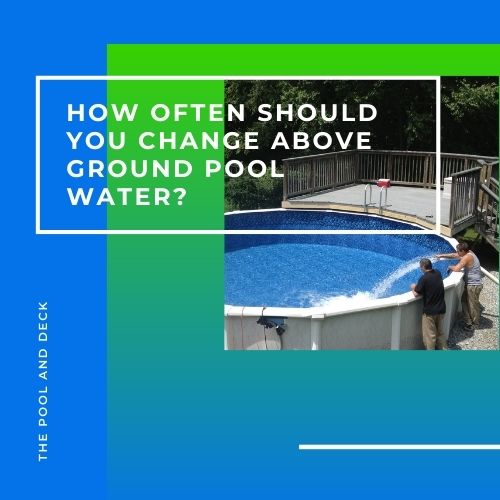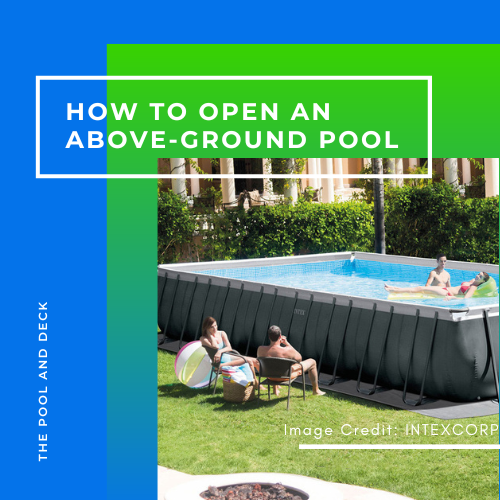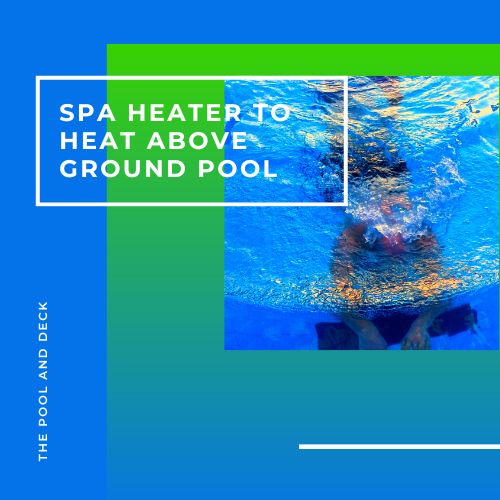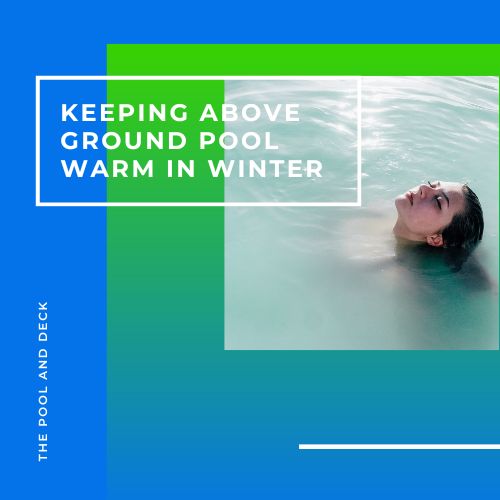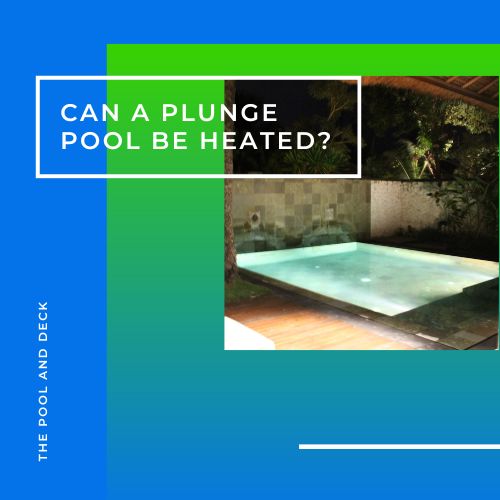How Do You Heat a Concrete Pool? (Guaranteed Best Way!)
As an Amazon Associate, I earn from qualifying purchases.
Table of Contents
How Do You Heat a Concrete Pool?
A concrete pool is the most popular type of inground pool. Concrete pools come with several benefits, strength & durability being on the top of the list. A concrete pool is a lifetime investment, just like your home. But how do you heat a concrete pool?
You can heat a concrete pool just like you can heat a vinyl liner or fiberglass pool. However, all conditions being the same, a concrete pool will consume more energy than a fiberglass pool to achieve the same desired temperature.
Concrete is a cold material and has very poor thermal insulation properties. Therefore a concrete pool loses heat, not only to the atmosphere from the surface but also to the ground from the pool walls and floor.
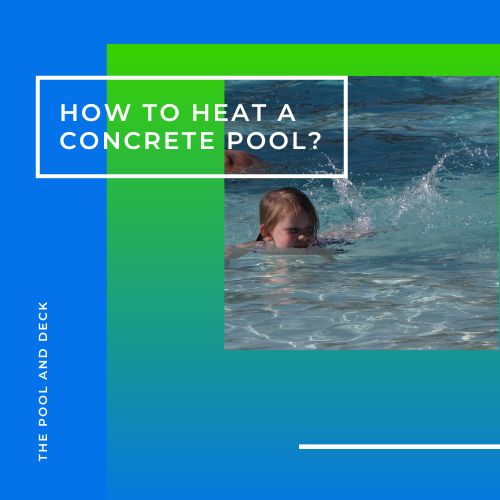
To understand how to heat a concrete pool you need to know the benefits of heating a concrete pool and the pool heater choices available. Only then can you choose the right pool heater and get it installed correctly.
Is It Worth Getting a Heated Pool?
A concrete pool can enrich your life in several ways. Better health, more relaxation and an increase in quality time with family and friends are some of them.
How can you Increase Pool Usage?
The pool season is considered to be from Memorial Day to Labor Day. That is around 12-13 weeks. The duration you can open your pool for of course depends on the climatic conditions in your town or city.
By heating your concrete pool you will be able to swim for another 12 weeks. Depending on your location it could be even more!
A heated concrete pool, therefore, significantly increases the pool utilization. A heated concrete pool doubles the amount of fun you & your family can have, swimming & splashing around.
Well worth it!
What Are the Health Benefits of Swimming in a Warm Pool?
Swimming is considered to be one of the best forms of cardiovascular exercise. It is low impact and lets you work out every muscle in your body.
Swimming can bring health benefits to all ages. Even those who suffer from minor physical problems such as arthritis or muscular diseases can swim and get the benefit.
A heated pool with warm water creates a comfortable environment for your body. A cold pool, on the other hand, can lead to a physical shock on entry. Less chances of catching a cold by swimming in a heated pool too!
Does a Warm Pool Help in Relaxation?
A pool is a great place to relax. A heated pool makes it even better. You don’t even need to be swimming laps. Just treading water or standing in the shallow end is enough to put your body & mind into a relaxed state.
It is less likely that you will achieve this state of relaxation in a cold pool. A hot tub or a spa is, of course, the ultimate in relaxation but a heated pool comes close.
Swimming in a heated pool is “mindfulness” in fluid motion. The rhythmic breathing and strokes send signals of rest & relaxation to your brain. You are in the “here & now”, the essence of mindfulness.
Quality Time with Family is Priceless!
A swimming pool in your backyard is rarely meant for use by a single person. Typically it is utilized by the entire family. It is also the perfect location for arranging pool parties for kids or get togethers for adults.
A lot of quality time, especially during weekends & vacations, is spent in and around the pool. A heated pool results in more & better quality time. The warmth invites people to jump in and splash around, even in late spring or early fall.
Whatever the cost of heating your concrete pool, it can not compare with the value of quality time with family. Quality time with family is priceless!
What Kind of Heater Should I Get for My Pool?
You can heat a concrete pool by using one of the following 3 types of pool heaters
- Electric Resistance Heaters or Heat Pumps
- Gas Fired Pool Heaters
- Solar Powered Pool Heaters
Each has their pros & cons. Find out more before you decide which one is best for you.
Electric Resistance Heater
An electric resistance heater uses a heating element to generate heat. The heating element converts electrical energy into heat energy by offering resistance to the flow of electricity.
The pros and cons of an electric resistance heater is as under:
| # | PROS | CONS |
| 1 | Independent of Outside Temperature | Low Efficiency |
| 2 | Compact Size | High Operating Cost |
| 3 | Quiet Operation | Low Heat Output |
| 4 | Low Initial Cost |
Due to the low efficiency and high electrical consumption to heat a body of water an electric resistance heater is not practical for heating up a pool which has 20 to 30,000 gallons of water. They work very well with hot tubs & spas, though.
Electric Heat Pump
An electric heat pump works on the same principle as an air conditioner, just in reverse. A heat pump works by moving heat from one location to another.
Air is blown over an evaporator coil transferring the heat energy from the air to the refrigerant. The heat gain by the refrigerant is circulated to a condenser coil. Air blown over the condenser coil absorbs the heat. This heated air is then used to heat the pool water.
The pros and cons of an electric heat pump is as under:
| # | PROS | CONS |
| 1 | High Efficiency | High Upfront Cost |
| 2 | Low Operating Cost | Long Heating Time |
| 3 | Long Life Span | Not effective when Temperature drops below 50° F |
| 4 | Ease of Installation |
Gas Fired Pool Heater
Gas Fired Pool Heaters are a great choice if you are already using gas to heat your home. The initial cost is lower than an electric heat pump but the operating costs are much higher. Their biggest advantage is that they heat up the pool real fast!
A Gas Fired Pool Heater is a great choice if you use your pool occasionally during winter. You can heat up the pool only when you need to swim. It is also one of the better options if you live in a cold climate where you may not get enough sunlight in winter.
The heater runs on propane or natural gas. So you need to hook it up to a backyard propane tank or a natural gas supply pipeline.
The pros and cons of a gas fired pool heater is as under:
| # | PROS | CONS |
| 1 | Lower Upfront Cost | High Operating Cost |
| 2 | Short Heating Time | Not Very Durable |
| 3 | Independent of Outside Temperature | High Maintenance |
The heater is added to the pool circulation system after the pump and the filter. Heat is generated in the heater by burning gas. The heated water goes back to the pool.
A Gas Fired Pool Heater is not the most cost effective or energy efficient option, but it gets the job done fast. To save operating costs, buy a model that has high efficiency.
Solar Powered Pool Heater
A Solar Powered Pool Heater works like any pool heater, except that it harnesses the energy from the sun, which is free.
The only caveat is that you must be living in a zone which has plenty of sunlight during the day.
The design of the Solar Powered Pool Heater can vary. For larger pools, rectangular solar panels, similar to those meant for house roofs, are used. For smaller pools, dome shaped Solar Powered Pool Heaters are more convenient.
The pros and cons of a solar powered pool heater is as under:
| # | PROS | CONS |
| 1 | Free Energy | Slow to Heat the Pool |
| 2 | Long Lifespan | Weather DEpendent |
| 3 | Eco Friendly | Low Heat Output |
| 4 | Low Maintenance |
The Mega SolarDOME works with your existing pool filter system. Using your existing filter system, water circulates through the solar panel, is heated by the sun and returns to the pool.
What Type of Pool Heater Is Best for You?
The Concrete Pool Heater that is best for you will mainly depend on
- Pool Size
- Climatic Conditions
- Pool Usage
- Cost
If you wish to use your pool even when the outside temperature is 65-70° F, then you are better off using a gas fired pool heater. Solar & Electric heaters will take too long to get the pool up to 78-80° F, a comfortable temperature for swimming.
However, if you are looking to extend your pool season by a few weeks, both before and after summer then an electric pool heat pump will be your best choice. It costs the least to run (other than solar, of course).
So you could and should run the electric heat pump 24/7.
I recommend that you go for an electric heat pump, unless you wish to heat your concrete pool even when outside temperature is below 50° F. Then go for a gas fired pool heater but be prepared to pay a hefty amount for natural gas or propane, as the case maybe.
Electric Pool Heat Pump prices can range from $1,000 for a 50,000 BTU model to $5,000 for a 150,000 BTU model.
How to Install a Heat Pump on a Concrete Pool?
Prepare a concrete slab that is 20’ – 30’ away from the pool and at the same level as the pool water level. Place the pool, filter and the heat pump on this slab. The slab should have a slight slope so that any condensation or water leakage drains away.
Keeping the pump, filter and heat pump close to the pool will reduce plumbing costs. It will also reduce heat losses in the return pipe line.
Make sure that the air circulation around the pool heat pump is really good. It also helps to keep the heat pump exposed to sunlight. Remember the heat pump extracts heat from the warm air around it.
The pool pump, filter and heat pump should be close to each other, but far enough to allow space for repairs & maintenance. The heat pump should have breathing space too!
A good thumb rule is to keep a distance of 36” between the pool pump and the heat pump.
The plumbing part of the installation is not very complicated and you could do it yourself.
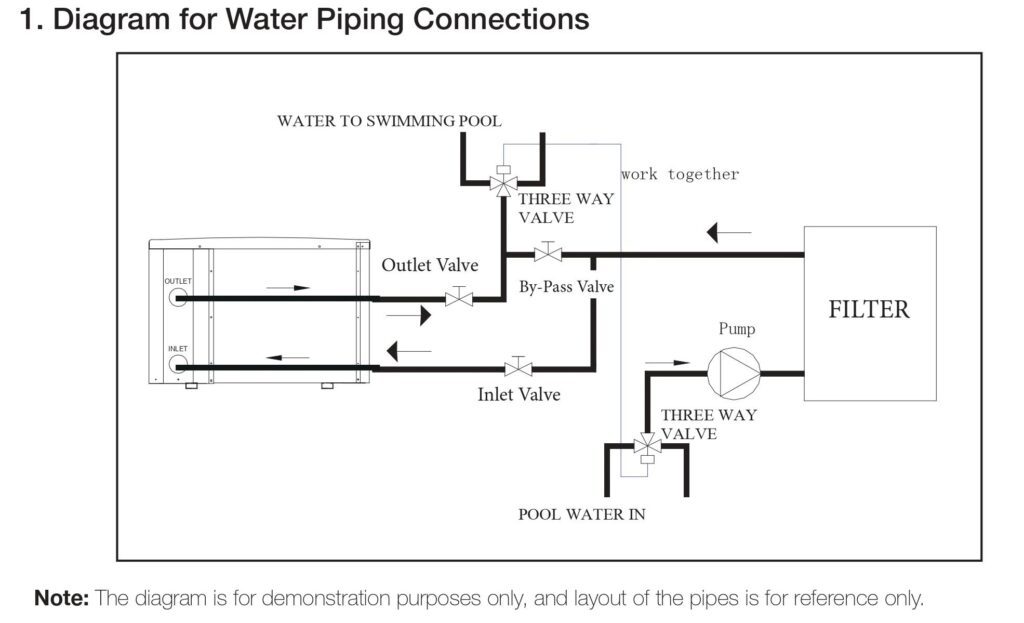
However I do not recommend that you attempt to DIY the electrical part.
Electrical connections of all equipment need to comply with the code and it is best to use the services of an experienced and qualified certified electrician. This part of the installation is going to cost too!
Thank you very much for reading the post. I do hope you found it informative and helpful.

